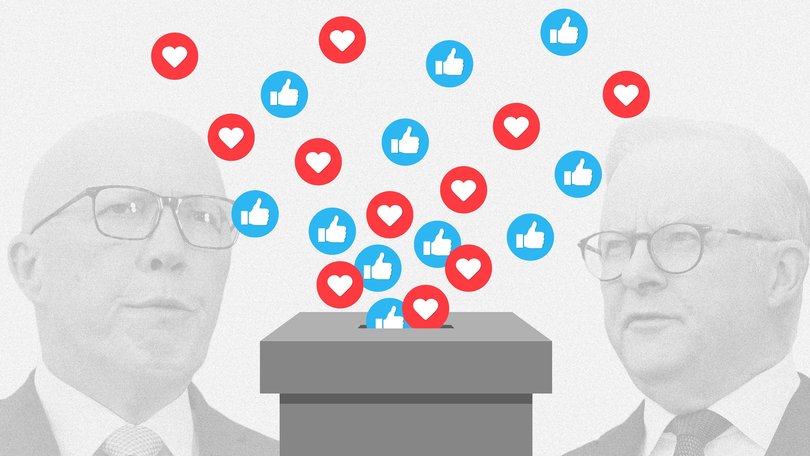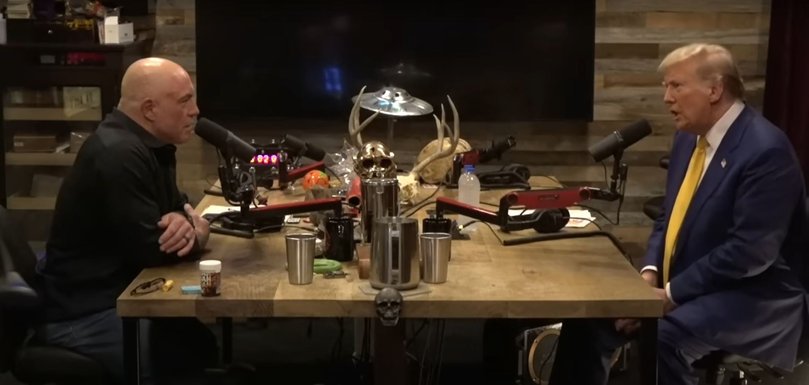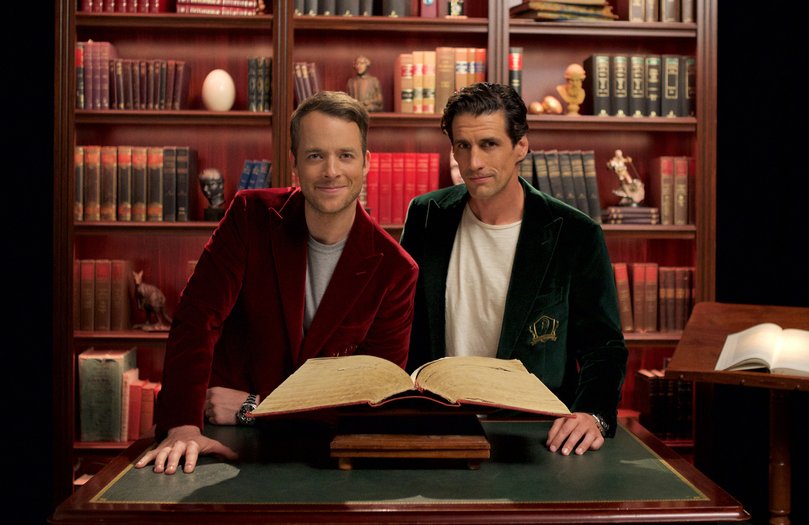Political parties turn to social media influencers in the chase for votes
Peter Dutton may have scored with his unexpected appearance on the Deep Dive podcast in late December, as pollies seek approval on new platforms.

On a hot summer’s day, voters are more likely to be at the beach than glued to their televisions for the nation’s latest political twists, so Coalition leader Peter Dutton may have hit a six with his unexpected appearance on the popular Deep Dive podcast in late December.
During an informal hour-long chat with Olympic diver Sam Fricker, Mr Dutton weaved through softball questions on his party’s policies on nuclear energy and immigration to offer some surprisingly personal insights about break-ups, stress-induced weight loss and embarrassment over his lack of diving prowess.
The opposition leader opened up to Mr Fricker, now a powerful social media personality with 2 million TikTok followers and 5.8 million subscribers, about his family’s tradition for hard graft and how the challenges and traumas of his former police work shaped his worldview and politics.
Sign up to The Nightly's newsletters.
Get the first look at the digital newspaper, curated daily stories and breaking headlines delivered to your inbox.
By continuing you agree to our Terms and Privacy Policy.The extensive interview with a political outsider, which pierced through Mr Dutton’s typically ‘hard man’ image, suggests the Coalition is trying to learn from the US election campaign where Donald Trump and Kamala Harris sought out podcast conversations to reach pools of voters who had long disengaged with the news agenda.
Mr Trump’s interactions with high-profile podcaster Joe Rogan — who enjoys more than 18 million subscribers on YouTube and more than 14m on Spotify — are believed to have carried significant weight with the young, male demographic his campaign were keen to embrace.

Barron Trump, the incoming president’s 18-year-old son, is said to have advised his septuagenarian father on how to woo the “bro vote” through influential Gen Z livestreamers like Adin Ross.
Experts believe Australia’s main parties are now carefully analysing the dos and don’ts of the American electoral landscape when it comes to relaying their own messages through social media influencers alongside more traditional media outlets.
“I think this probably will be the election we see that sort of tipping point of influencers being a lot more engaged and involved with the campaign, but it’ll be on issues, it won’t be on the broad-based party platform,” said Andrew Hughes, a political communications and marketing expert at the Australian National University, about the upcoming Federal poll.
Politicians could harness the world of influencing and podcasting to lay out their agendas on particular topics like climate change or housing, in the way that social media personalities had leaned into expressing views on the Voice referendum while avoiding an overtly party political tone, he said.
Dr Hughes said Mr Dutton’s chat with Sam Fricker had been influential in blunting negative perceptions and boosting a more authentic and natural image.
Podcasts were helpful in widening appeal and to talk and listen to specific audiences, and Mr Dutton had been pursuing “likeability and believability,” he argued.
“[This] means that when he does hit the mainstream messaging and the mainstream campaign, the more you’re more likely to believe it.”
While Prime Minister Albanese had deployed a smart communications strategy to go early with a mass market message on traditional media in a tour of three major states this week, he would also benefit from honing his image through a well-timed podcast, he said.
“Anthony Albanese has to work on coming across a bit more engaged and passionate about issues,” he argued.
An appearance with famous stars like comedy duo Hamish and Andy could be the right medium to change perceptions, said Dr Hughes.

And while “sceptical” Australia does not have an equivalent of America’s brash and outspoken Joe Rogan, parties could also gain wider recognition on core messages by reaching out to internet personalities like Mia Freedman, the co-founder of women’s media company Mamamia, or the viral Ozzy Man Reviews.
Ethan Marrell, who created Ozzy Man, boasts 6.8 million YouTube subscribers, matching and often far outmatching the country’s most viewed TV broadcasts last year.

The Albanese campaign — also with one eye on the US — is expected to make similar overtures to influencers outside of traditional media to a reach a wider audience of voters, crucially younger generations struggling with the cost-of-living and jaded with the regular news cycle.
However, strategists will likely aim to avoid judgement errors like the much mocked “Creator Lounge” reserved for some 200 credentialed influencers at the Democratic National Convention to stump for Vice President Kamala Harris.
The unprecedented official inclusion of content creators — with about 70 at the Republic convention — and setting up of “creator-only” spaces, stoked resentment among traditional media who viewed them as cheerleaders who were being given special treatment.
“It’s impossible to walk through the hall without seeing one of them filming videos, hyping up the crowd or pausing for selfie,” said a scathing takedown of the practice in Politico, headlined “The Influencers Stanning Kamala — And Infuriating the Press Along the Way.”
But in an age where so many voters get much of their news content from social media on their smartphones, the role of influencers has to be factored into any successful political campaign alongside traditional media appearances.
A Labor source said the party would push its core message about building the country’s future on the foundations of the past three years in different styles across a proliferation of social media platforms including Instagram, TikTok and LinkedIn.
“We’ll be making content for all platforms and building relationships with content makers,” said the source, while stressing a key difference with the United States - influencers would not be paid.
“Australia is not culturally ready for parties to pay content makers..this would create a backlash.”
Labor is also keen to avoid the trap of celebrity endorsement that backfired on VP Kamala Harris’ presidential campaign, recognising that attempts to rally famous personalities to give politicians a pat on the back would likely hit a wall of cynicism and fall victim to “tall poppy syndrome.”
However, Dr Hughes said influencer platforms offered the chance to chase a five or ten per cent block of undecided voters that could make a crucial difference to the outcome.
Influencers also presented another niche attraction.
“They’re always aspirational. They’re positive. And a lot of leaders are looking for positivity in their messaging right now.”

